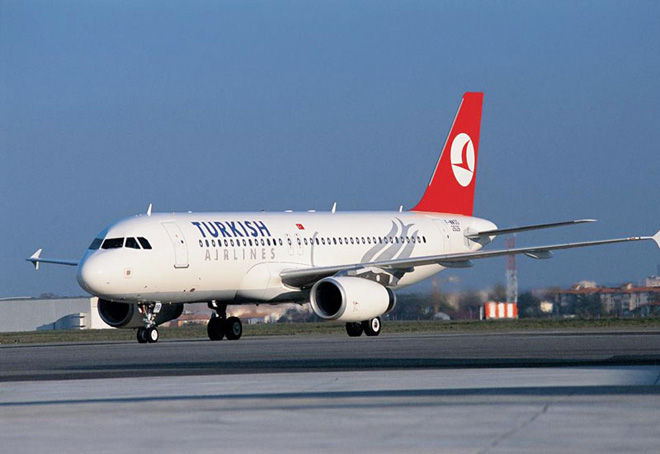Palestine played a key role in the release of the kidnapped Turkish pilots in Lebanon, said Palestinian Ambassador to Turkey Nabil Maarouf, Today's Zaman reported.
Speaking to a small group of Turkish journalists in Ankara on Wednesday, Maarouf said the Turkish people have a right to know that Palestine played a key role in the release of two kidnapped Turkish Airlines pilots, Murat Agca and Murat Akpınar.
"We played a role. It was a central role. Thankfully, we succeeded in releasing the Turkish pilots," said Ambassador Maarouf.
When asked why the Palestinians were involved, he replied: "If we find a chance to say thank you to Turkey, we do not miss this chance. I did it myself. It was something good and it had to be done."
Turkish Foreign Minister Ahmet Davutoglu has thanked the Qatari government's role in the release process of the pilots. Maarouf said he did not know why Palestine's role in this process has been ignored. The ambassador said he informed Davutoglu about this.
The release of the two pilots was part of a negotiated hostage deal that included the freeing of kidnapped pilgrims as well as Syrian women held in jails in Syria.
The nine Shiite pilgrims were kidnapped in May last year while on their way from Iran to Lebanon via Turkey and Syria.
Davutoğlu, however, dismissed claims that the release of the Turkish pilots was part of a three-way hostage deal. He said in a televised interview on Saturday night that the kidnapping of the Turkish pilots had nothing to do with Syria and that the hostage exchange deal between the rebels and the Syrian regime was a separate process.
Ambassador Maarouf said he is not aware of a ransom in exchange for the hostages. He said he has not witnessed any "money talk'' at any point.
''The Turkish people have the right to know that we worked for Turkish pilots,'' Maarouf said.
When asked whether there is any risk for kidnappings of Turks in the region, Maarouf said the kidnappers wanted to put pressure on the Turkish government about the release of Lebanese hostages, but he said he does not think any more kidnappings of Turkish citizens will take place.
Maarouf said, as part of the negotiation process, only 13 Syrian women were released on Tuesday in Syria instead of 127. The total number of women in jails is close to 300, he stated.
Maarouf said he has been involved in this process since Sept. 20, 2012, because Palestinian President Mahmud Abbas asked if they could help to release those kidnapped to reduce the tension in Lebanon, as many Palestinians live in Lebanon.
Maarouf said he went to Kilis and Gaziantep in October 2012 and asked to meet the leader of the kidnappers, known as Abu Ibrahim. After having positive indications from Abu İbrahim, Maarouf informed President Abbas. Then Abbas paid a secret visit to Ankara and met with Prime Minister Recep Tayyip Erdogan and Foreign Minister Davutoglu on Oct. 17, Maarouf said. The Turkish government was very positive and ready to help, according to him.
About a month after this visit, Abu Ibrahim contacted Maarouf and asked him to help get in touch with an embassy in Ankara. Maarouf did not name the embassy. Abu Ibrahim asked for help in making contact with a certain embassy in exchange for releasing the hostages. Maarouf arranged the contact that Abu İbrahim sought.
After Abu Ibrahim was injured and eventually died, the new contact name for the negotiations was Samir Anuri, Maarouf said. He said, at the end of April he informed the chief of Lebanese intelligence, Abbas İbrahim, about the situation and gave him the name of the new contact.
About 300 Syrian prisoned women were also to be released in exchange for the Lebanese hostages. However, the number was reduced to 127. Maarouf said he called Abbas İbrahim and asked him to guarantee the release of the Syrian women, as well as the Turkish pilots. After getting the guarantee, on Oct. 2, Maarouf said he went to see Ömer Önhon, the undersecretary of the Turkish Foreign Ministry.
"He was surprised," Maarouf said after hearing the story of how a solution was sought for the release of the pilots. After hearing nothing from the Turkish Foreign Ministry, Maarouf put the information in writing and sent the letter dated Oct.4, 2013, to the ministry detailing the latest situation on his endeavors to secure the release.
Maarouf said two days later he was invited to meet the Qatari foreign minister in Doha and before he left for Doha, Onhon called him and said, "You have the green light, go ahead. Turkey is ready to help and facilitate in this process."
Then the Qatari foreign minister and Qatar's head of intelligence came to İstanbul, he said, and following these events, the Turkish pilots were finally released.






